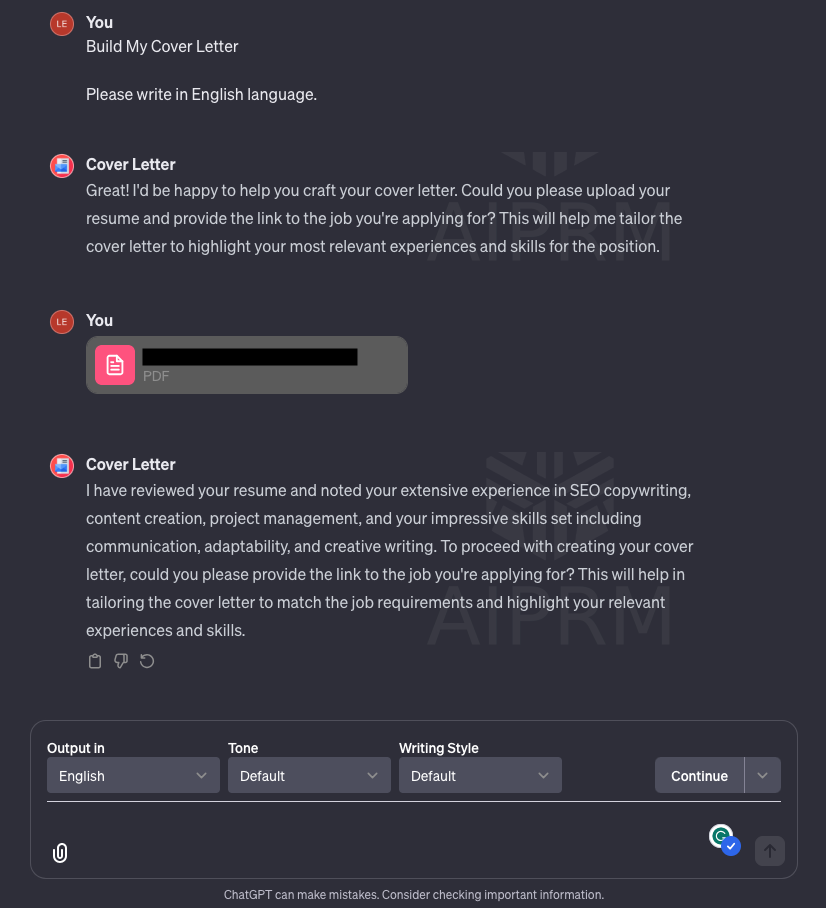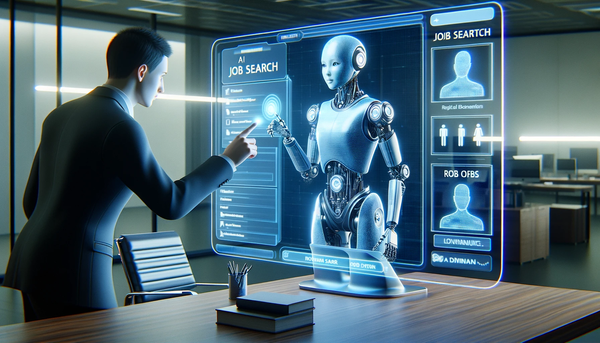Job Application AI agent
Looking for a job application AI agent? The rise of artificial intelligence (AI) has brought about remarkable changes in various industries, and the job search process is no exception. One of the most innovative developments in this area is the Job Application AI agent. But what exactly is an AI agent, and how can it help job seekers land their dream roles? Let’s explore.
What Is an AI Agent?
An AI agent is a system or program that performs tasks autonomously by analyzing data and making decisions based on pre-defined logic or machine learning models. Unlike traditional automation tools that follow rigid scripts, AI agents can learn from interactions, adapt to new inputs, and make intelligent decisions. Examples of AI agents include:
- Virtual Personal Assistants like Siri or Google Assistant, which respond to voice commands.
- Customer Support Bots that handle inquiries and provide answers based on user inputs.
- Recommendation Engines on platforms like Netflix and Amazon that suggest content based on user preferences.
In the job market, an AI agent tailored for job applications can take on the time-consuming and repetitive tasks of searching for, analyzing, and applying to roles—a game-changer for job seekers.
The Problem with Traditional Job Applications
Applying for jobs is often an overwhelming and time-draining process. Candidates must:
- Search for job postings across multiple platforms.
- Manually review each listing to check if it matches their skills.
- Tailor their resumes and cover letters for each position.
- Complete lengthy application forms.
- Answer detailed screening questions.
This multi-step process can take hours for just a few applications. Screening questions, in particular, require thoughtful responses that align with the job description and the candidate’s background, further slowing down the process.
Unfortunately, these delays can result in missed opportunities, as companies often review applications on a first-come, first-served basis. Additionally, fatigue from repetitive tasks can lead to mistakes or incomplete applications.
Why a Job Application AI Agent Matters
The complexity and sheer volume of job applications make an AI agent uniquely suited for this domain. An AI-powered solution can streamline the process by handling:
- Job Searches: Continuously scanning job boards and company websites to find relevant postings.
- Job Matching: Analyzing job descriptions and matching them to a candidate’s skills and experience.
- Form Completion: Automatically filling out application forms with the candidate’s details.
- Screening Question Responses: Using AI to generate customized answers based on the candidate’s history and the job requirements.
- Job Submissions: Completing the entire application process and notifying the candidate once the application is submitted.
This automation saves time and increases the number of opportunities a job seeker can pursue—without sacrificing quality.
Introducing LoopCV’s Job Application AI Agent
LoopCV offers a state-of-the-art Job Application AI agent that simplifies job hunting. With over 1 million candidates already benefiting from this technology, LoopCV empowers job seekers by handling the entire application process from start to finish.
How It Works
- Profile Matching: LoopCV’s Job Application AI agent scans job descriptions and evaluates whether they align with the candidate’s skills, experience, and preferences.
- Screening Question Optimization: Using AI, LoopCV analyzes typical screening questions and generates answers based on the candidate’s professional background.
- Automated Submissions: The agent completes application forms, uploads resumes, and answers questions as if the candidate were doing it manually.
- Real-Time Notifications: Once a job application is submitted, the candidate receives a notification. If a company expresses interest, LoopCV alerts the candidate to schedule an interview.
By automating these steps, LoopCV’s Job Application AI agent dramatically reduces the time spent applying for jobs—freeing up candidates to focus on interview preparation and skill development.
Saving Time and Boosting Efficiency
Consider this comparison:
- Traditional Job Application: A candidate spends 30 minutes to an hour researching and applying for each job. Applying to 20 positions can take up to 20 hours.
- Using LoopCV’s Job Application AI Agent: The same candidate can apply to hundreds of positions in minutes. Assuming they apply to 200 roles, LoopCV could save them nearly 200 hours of manual effort.
Beyond time savings, LoopCV increases the likelihood of landing interviews by:
- Ensuring applications are submitted quickly.
- Tailoring responses to screening questions for better matching.
- Maximizing the number of applications sent without compromising quality.
Human-Like Behavior for Undetectable Automation
One common concern with automation is the risk of detection by companies. LoopCV’s Job Application AI agent is designed to behave exactly like a human applicant. It follows the same steps a person would:
- Browsing job boards and reading descriptions.
- Filling out forms manually.
- Uploading customized documents.
Since it mimics natural user behavior, the system leaves no trace of automation. This ensures that candidates using LoopCV’s Job Application AI agent remain compliant with job board and employer guidelines.
Real-World Impact
Imagine two job seekers, Alex and Taylor:
- Alex, who manually searches and applies to jobs, can complete about 10 applications in a full day of work.
- Taylor, using LoopCV’s Job Application AI agent, applies to 200 jobs in just a few hours. By the time Alex finishes, Taylor has already received several interview invitations.
With this powerful advantage, LoopCV users can be first in line for new opportunities, boosting their chances of getting noticed.
Conclusion
The job market is competitive, and speed and efficiency are critical to securing interviews. LoopCV’s Job Application AI agent transforms the application process, saving time, reducing effort, and increasing success rates. By leveraging AI to handle everything from job searches to customized responses, it empowers candidates to focus on what matters most—preparing for their next big career move.
Try LoopCV’s Job Application AI agent today and experience the future of job searching firsthand!



